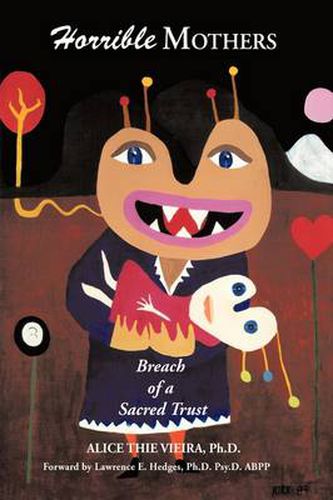Readings Newsletter
Become a Readings Member to make your shopping experience even easier.
Sign in or sign up for free!
You’re not far away from qualifying for FREE standard shipping within Australia
You’ve qualified for FREE standard shipping within Australia
The cart is loading…






This title is printed to order. This book may have been self-published. If so, we cannot guarantee the quality of the content. In the main most books will have gone through the editing process however some may not. We therefore suggest that you be aware of this before ordering this book. If in doubt check either the author or publisher’s details as we are unable to accept any returns unless they are faulty. Please contact us if you have any questions.
This seemingly simple but truly complex question" True or false: “My mother was a good woman.” This item has appeared in one form or another on countless psychological inventories over the years. The culturally-prescribed answer is, of course, “True.” Even the people most abused by their mothers tend to rise to defend “Mom.” The rationale varies: “She was basically good”; “She was never cut out to have children”; “She simply had no idea how to be there for me”; “Perhaps if she hadn’t had me…”; “Maybe it was I who turned her into a bad mother?” As early as 1954 in his work with abused children, psychoanalyst Ronald Fairbairn observed that a child acknowledging to herself or anyone else that she had a bad mother or that her mother was a bad woman was tantamount to admitting that the child was, by association, a bad person –and so it becomes an act of self-preservation to hold that one’s mopther is good, never mind all evidence to the contrary. In Horrible Mothers, pshychotherapist Alice Thie Vieira takes us into the world of individuals who have endured devastating damage at the hands of society’s most sacrosanst icon: the Mother. Vieira does so with four chief aims: 1. to label abuse so as to be able to acknowledge it; 2. to recognize that the sanctification of motherhood is a burden that society has foisted upon them; 3. to help mothers understand how their mothering may have hurt their children; 4. to help victims of horrible mothering grasp the unfairness of what was done to them, to comprehend how it affected their lives, and acknowledge what they have endured so as to break free from unhealthy attachments to their inadequate mothers, and thus move forward and better realize their potentiality.
$9.00 standard shipping within Australia
FREE standard shipping within Australia for orders over $100.00
Express & International shipping calculated at checkout
This title is printed to order. This book may have been self-published. If so, we cannot guarantee the quality of the content. In the main most books will have gone through the editing process however some may not. We therefore suggest that you be aware of this before ordering this book. If in doubt check either the author or publisher’s details as we are unable to accept any returns unless they are faulty. Please contact us if you have any questions.
This seemingly simple but truly complex question" True or false: “My mother was a good woman.” This item has appeared in one form or another on countless psychological inventories over the years. The culturally-prescribed answer is, of course, “True.” Even the people most abused by their mothers tend to rise to defend “Mom.” The rationale varies: “She was basically good”; “She was never cut out to have children”; “She simply had no idea how to be there for me”; “Perhaps if she hadn’t had me…”; “Maybe it was I who turned her into a bad mother?” As early as 1954 in his work with abused children, psychoanalyst Ronald Fairbairn observed that a child acknowledging to herself or anyone else that she had a bad mother or that her mother was a bad woman was tantamount to admitting that the child was, by association, a bad person –and so it becomes an act of self-preservation to hold that one’s mopther is good, never mind all evidence to the contrary. In Horrible Mothers, pshychotherapist Alice Thie Vieira takes us into the world of individuals who have endured devastating damage at the hands of society’s most sacrosanst icon: the Mother. Vieira does so with four chief aims: 1. to label abuse so as to be able to acknowledge it; 2. to recognize that the sanctification of motherhood is a burden that society has foisted upon them; 3. to help mothers understand how their mothering may have hurt their children; 4. to help victims of horrible mothering grasp the unfairness of what was done to them, to comprehend how it affected their lives, and acknowledge what they have endured so as to break free from unhealthy attachments to their inadequate mothers, and thus move forward and better realize their potentiality.